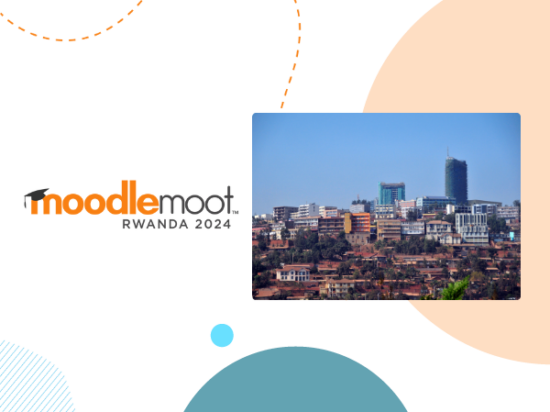INTRODUCTION
Increasing Diversity by Increasing Access to Legal Education (IDIA) is a project founded by Prof (Dr.) Shamnad Basheer, with a mission to create community advocates and leaders from marginalized communities in India.
The project does this by training underprivileged students (from families with incomes less than USD 2,500 per annum) to gain admissions to top law schools in India and supporting them in their journey thereafter.
Currently in its seventh year of operations, IDIA is supporting more than 70 students, including 16 scholars with disabilities, studying at the top law schools in the country.
The project is able to empower legal advocates and leaders by using the cost-effective and powerful Moodle learning platform to deliver their training.
PROBLEM
In India, it costs close to USD 27,000 to complete a five year law course. To put this in perspective, 75% of households in rural India earn less that USD 100 per month.
In addition, of the 4.5 million students with disabilities in India, very few have access to quality higher education. Even in the few instances where they can afford coaching, inaccessible content and inaccessible learning systems act as barriers restricting their growth.
Commercial coaching for the entrance examinations to law schools is also prohibitively expensive. This poses an additional barrier for students from marginalized communities, and only increases the gap between the privileged and the underprivileged.
As a result, national law schools in India, referred to by a former Prime Minister of India as “islands of excellence in an institutional sea of mediocrity” remain a distant dream for the underprivileged.
For the IDIA project to meet its mission of empowering underprivileged students through legal education, training and support will need to be delivered using a cost-effective platform that allows for collaborative learning and which is accessible across the rural regions in India.
ACTIONS
The Training and Materials (T&M) vertical at IDIA use Moodle to train underprivileged students for free for the entrance examinations to top law schools in India.
From the beginning, the organisers of the IDIA project were clear that they needed a platform that can be accessible to the able-bodied and the disabled learners.
Moodle was deemed as the perfect solution to ensure that all IDIA materials remain accessible to their blind students and the organisers deployed simple solutions to ensure high levels of accessibility. For example, instead of CAPTCHA which is sometimes inaccessible to persons with visual disabilities, they installed email based registrations with their Moodle site.
Siddhant Sachdeva, Moodler and co-team leader of the T&M vertical says: “The idea to use Moodle was floated at a time when IDIA’s Training and Materials team was brainstorming on efficient ways to coordinate the work of student volunteers based in different cities and come up with innovative ways of training.”
“At the time, we could never have envisioned working on and building the platform that we have today. In less than a year, we have been able to deliver high quality training materials with a diverse group of almost 30 volunteers from different states of India.”
“These volunteers created, uploaded, edited content online and the same wouldn’t be possible without the functionalities offered by the Moodle environment.”
Moodle is also used to provide reasonable test taking accommodation for IDIA students with disabilities. In India, persons with disabilities, under law, are provided 20 minutes additional time for every one hour of an examination. Many commercial coaching centres do not provide this accommodation for persons with disabilities. Moodle enables IDIA to provide such accommodation with the click of a button.
Shilpa Prasad, Moodler and co-team leader of IDIA’s T&M vertical, says: “Moodle helps us host content that would otherwise be inaccessible to those without the privilege of expensive knowledge. In building free content, it gives us the ability to bridge that gap and reach out to those in need.”
RESULTS
“IDIA’s experience with Moodle has been a fulfilling and enriching journey where we get to present a solution to the educational crises plaguing India,” says Anusha Reddy, Moodler and director in-charge of the Training and Materials vertical at IDIA.
“Our key takeaway has been that with open access technology and passion, one can solve a problem by expending little to no financial resources.”
As organisers of IDIA are lawyers with limited technology knowledge and expertise, Moodle has taught them to code, design and implement solutions to solve problems. They have also been beneficiaries of Moodle’s open community where so many people from around the world have played a critical role in building their platform, by answering questions in Moodle forums, by improving Moodle documentation and by developing plugins to further extend and enhance their Moodle site.
“Like Moodle, IDIA is a volunteer driven collaborative effort to solve problems. Our ultimate vision of change is that of fostering transformative changes to the legal eco-system, such that IDIA itself becomes redundant over time! Till such time, we are onwards our journey of creating community leaders and advocates,” says Professor Basheer, Founder and Managing Trustee, IDIA.
IDIA’s Moodle platform is accessible publicly for viewing.
In creating this case study, IDIA would like to thank each and every person within the Moodle community and beyond, who have gone out of their way to help build their platform.
FURTHER INFORMATION
For more information about IDIA, please visit www.idialaw.com or write to info@idialaw.com



